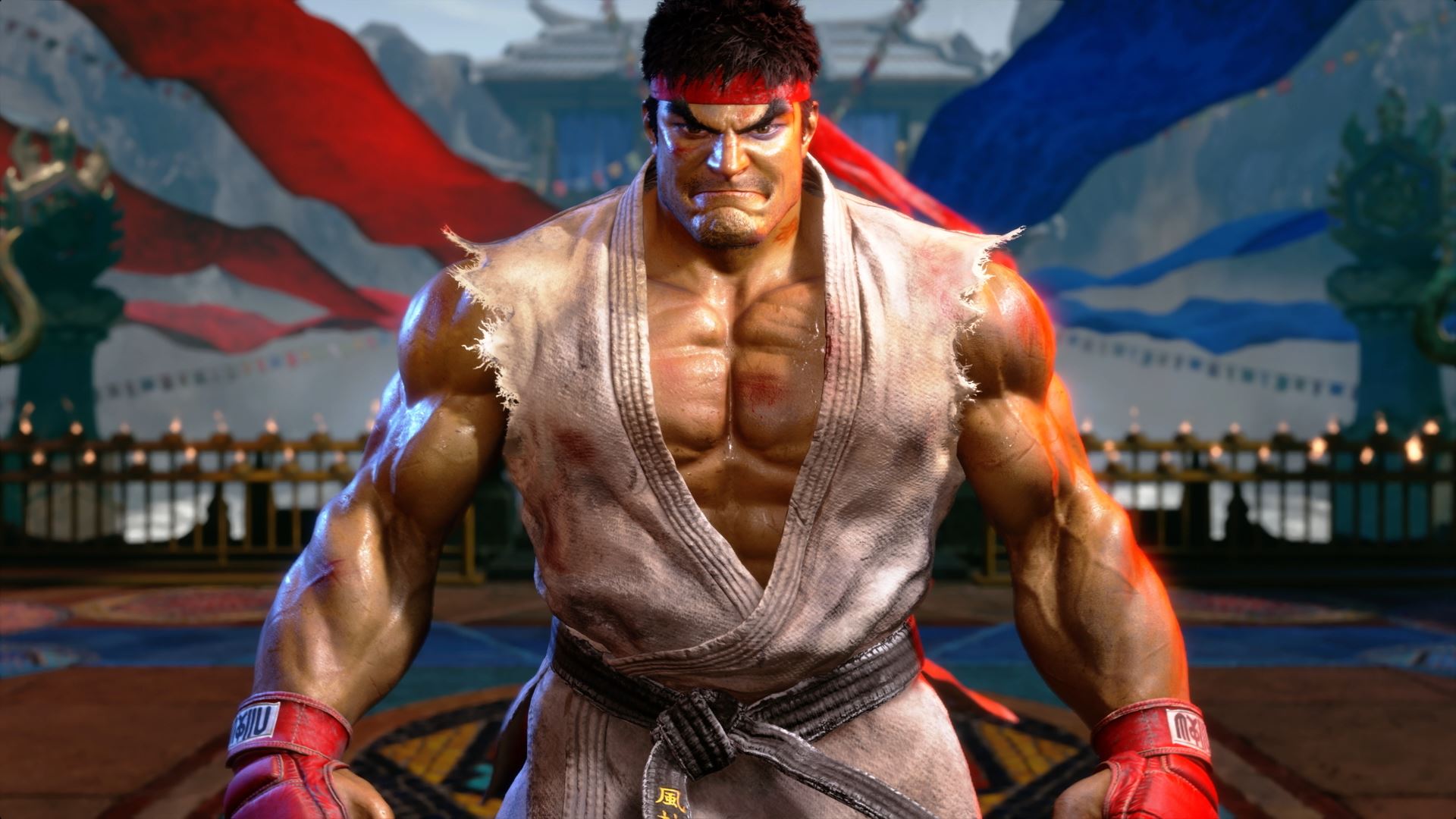
The launch of Street Fighter 5 was a bit of a mess. Sure, the actual fighting was fantastic – and, to be fair, it has only gone from strength-to-strength during its lifespan, adding characters, balance and more single-player content – but it has struggled to shake the reputation it had at launch: that it was an extremely barebones package that wasn't worth the money. With Street Fighter 6, Capcom is looking to sidestep this quandary by putting a whole boatload of content for all types of fighting game player.
Of Street Fighter 6's three different modes, the one we haven't seen much of until now is its World Tour mode – a fully-realised semi open-world single-player campaign that recently received a very brief demo, where players could create their avatar and then play through the tutorial section.
We had the chance to play a bit more of that at Capcom's UK HQ recently, playing up to the start of the third chapter, and getting a bit more insight into what this World Tour is going to offer. We also went hands-on with the full roster, all of the game's characters, not just the eight that have been available in the two beta tests.
Fighting chance
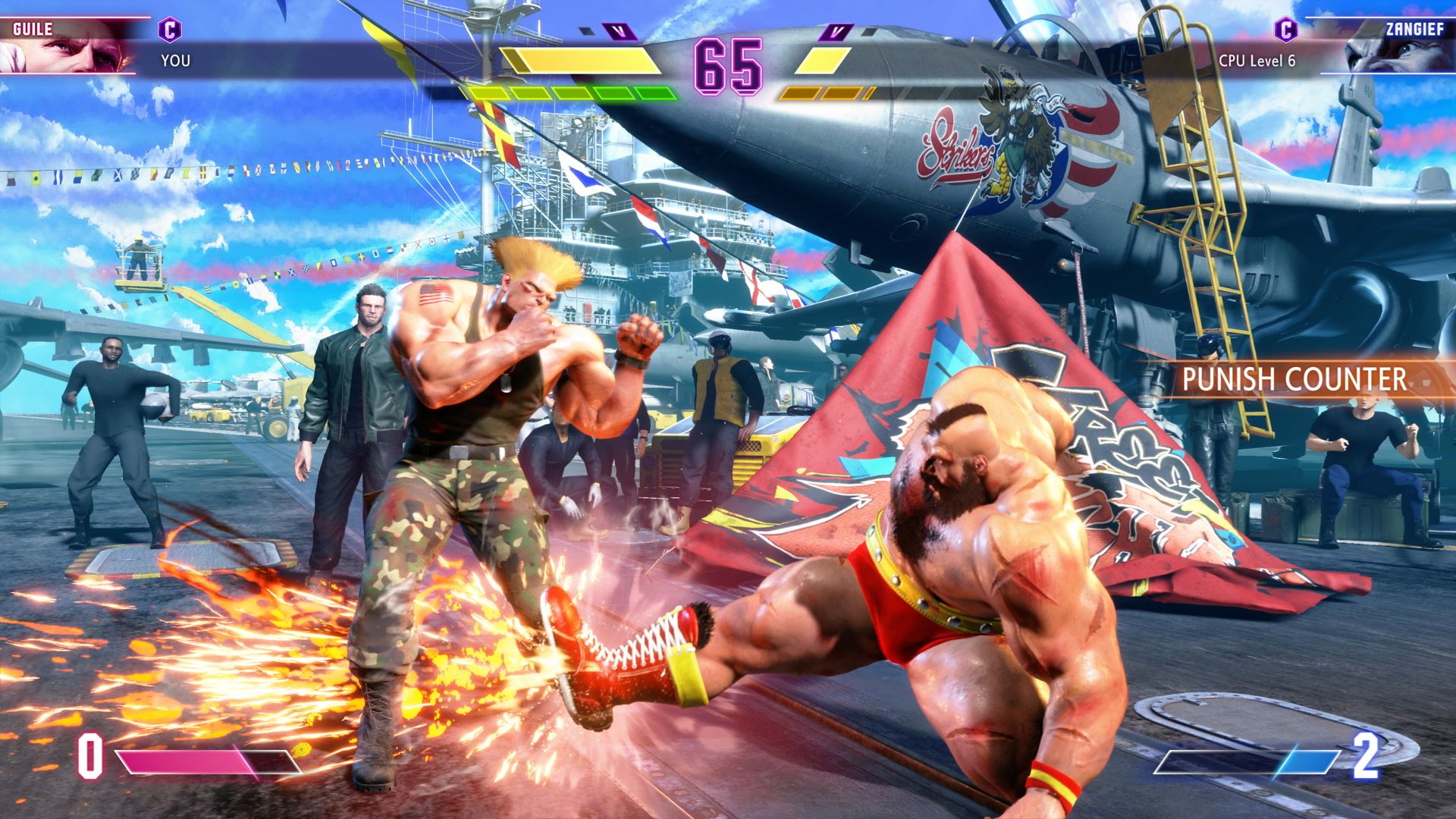
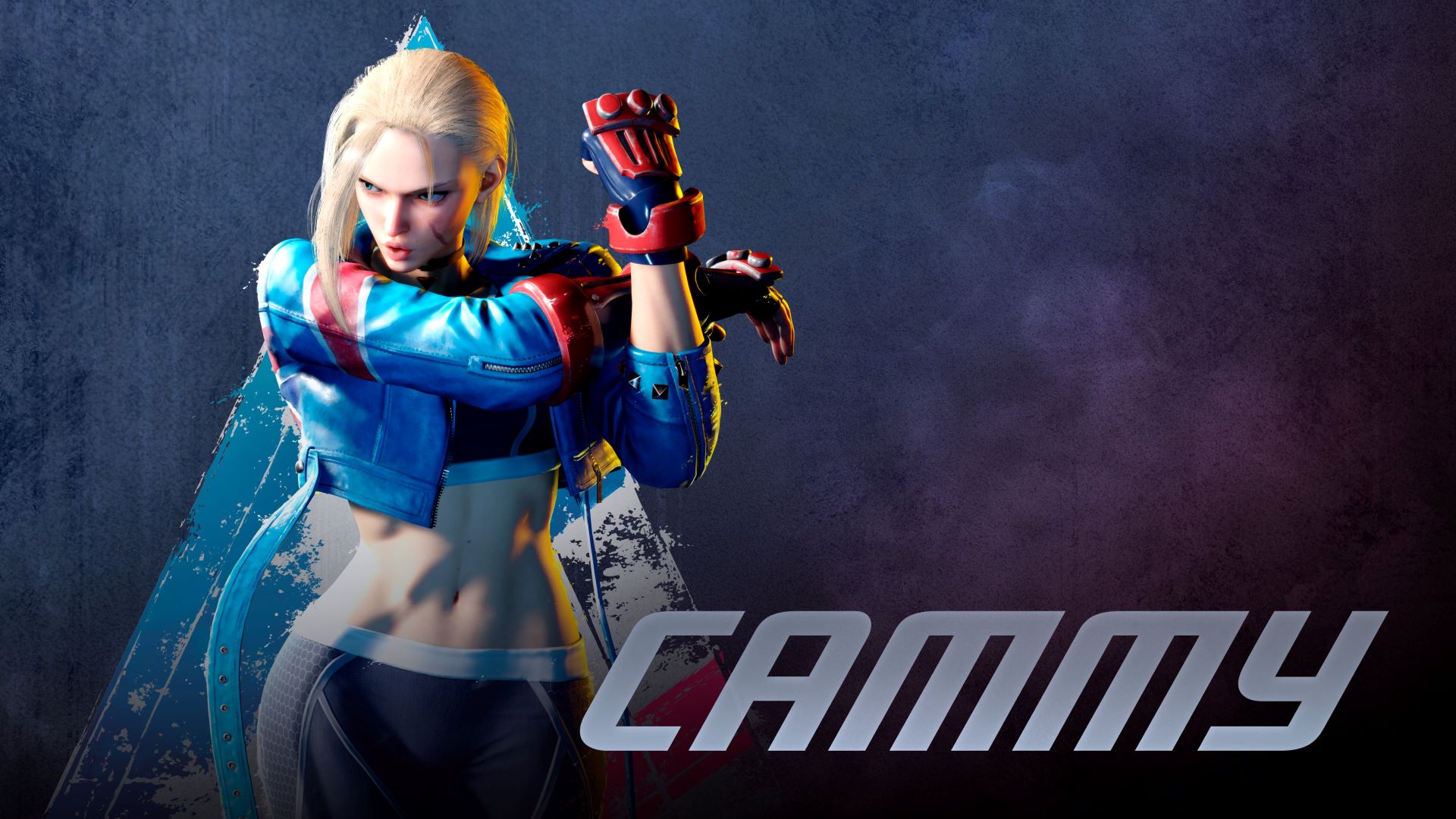
All of the Street Fighter 6 characters revealed so far
SF6's World Tour mode has you walking around Metro City – the same Metro City where the Final Fight games are set – in an almost Yakuza-esque fashion. You can fight almost anyone in the city by either asking them for a scrap or by just straight-up hitting them in the face, which is, of course, a more expeditious way of kicking things off. It's hilarious simply walking up to someone minding their own business in Metro City, and giving them a Dragon Punch – you'd think the civilians of a town that spawned three Final Fight games would be more ready for these sorts of things!
Anyway, these fights play out in the classic side-on, 2D Street Fighter style. Split into chapters, the demo section is basically a tutorial that explains the general idea of World Tour mode, which is to complete missions to progress the story and level up your moves. You learn these from the cast of Street Fighters who can be found within the world and can become your master – whereas becoming a student of a fighter gains you access to some of their moves and, the more you use them, lets you level up your affinity and unlock more moves, including Super Arts. You can also use these moves in the free-roam mode to traverse certain areas – a spinning bird kick, for example, can be used to travel over gaps that otherwise can't be cleared.
The new star of the game, Luke, is your first master and walks you through this first section, so you start with his fireball and dragon punch abilities.
After the demo area, you head out to Chinatown – a dense, highly-detailed area where a crime gang who wear paper bags on their heads are much more aggressive than the opponents faced before. Instead of offering these guys out for a fight, they'll start on you if you get too close, sometimes resulting in big, multi-person battles. Also in Chinatown, unsurprisingly, is Chun-Li, who you can become a disciple of. These masters are also quest-givers, and she'll send you out on a few errands, all involving kicking the crap out of some unfortunate people.
One of the coolest aspects of this master/student mechanic is that you can mix-and-match special moves from the various masters and create a completely custom character. This is sure to allow for some hilariously broken setups – how about being able to use Dhalsim's teleport to get in, and then delivering Zangief's spinning piledriver? These characters can even be pitted against other players in the online lobby.
After this Chinatown excursion, day turned to night and the Mad Gear Gang of Final Fight fame spawned into the city, and our time with this mode came to an end. It was enough to give us a little taster of what will be possible and, with Capcom confirming that DLC characters will also be added into World Tour mode upon their release, it seems like it'll be more than just a one-and-done single-player mode like most other fighting games, but instead something designed to sit alongside the competitive modes throughout the game's lifespan.
On tour
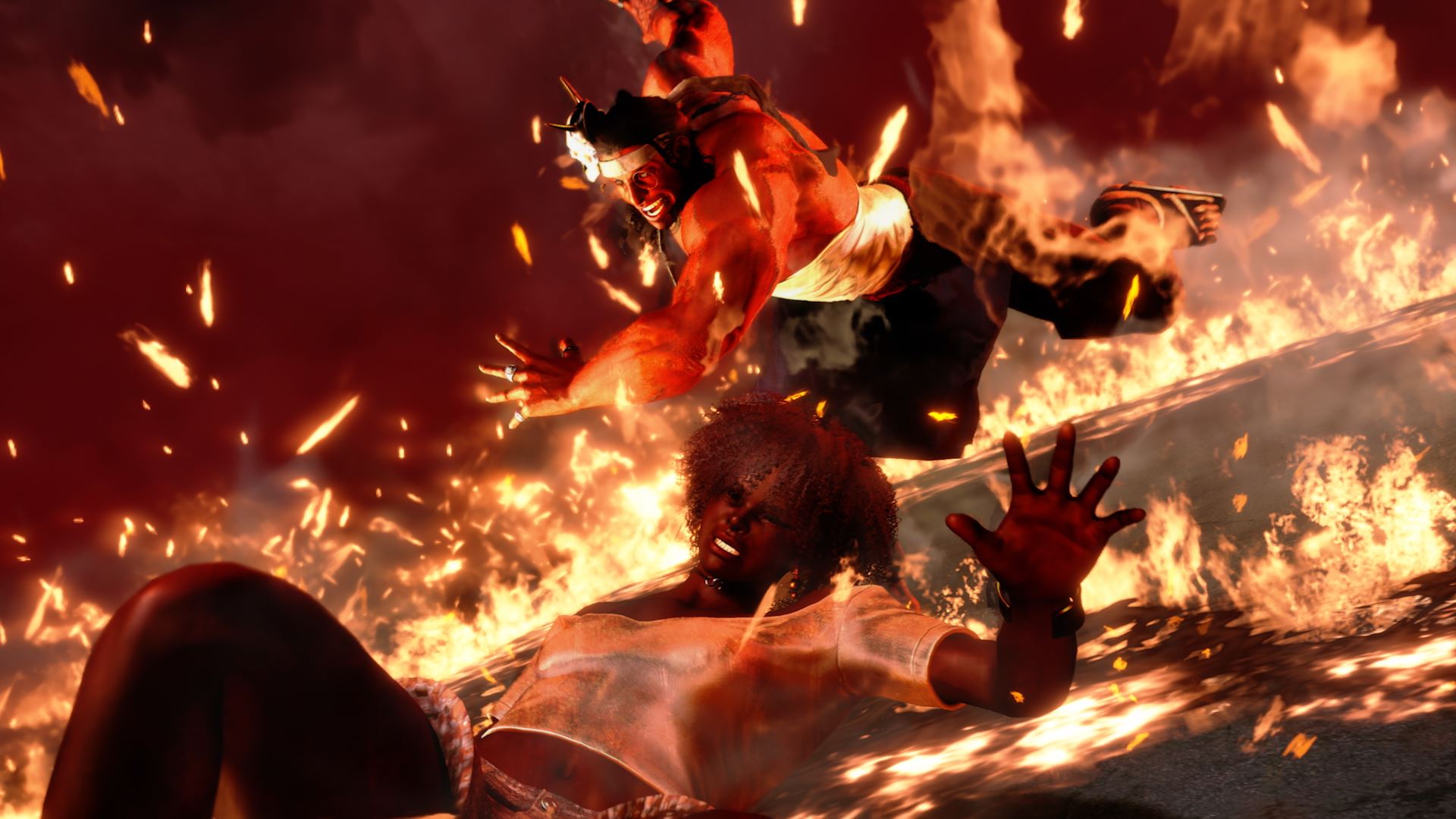
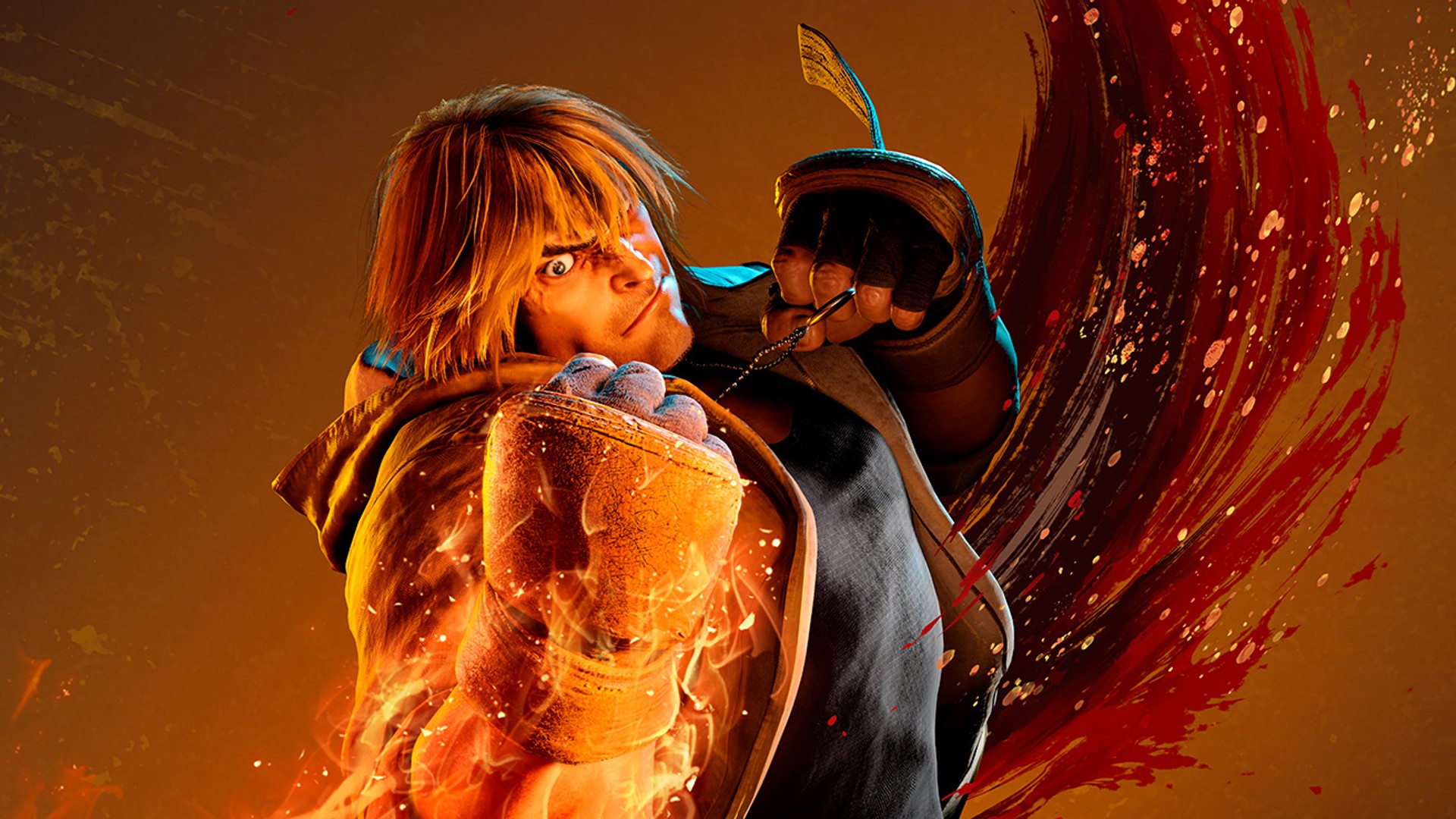
Street Fighter 6 beta proves Capcom is onto something special
With the entire roster available to us in Fighting Ground, focus was put on the characters that the public are yet to get their hands on, and it showed that there's some considerable variety even in the launch lineup. We had 90 minutes to get through all of the modes on offer, as well as try out all of the characters and, frankly, anyone who knows anything about fighting games knows this isn't enough time to sink your teeth in. As such, some fighters wound up getting more love than others, but it was enough to give us a decent idea as to what to expect from them, returning and new characters alike.
With two of the characters, we had access to some of the in-game resources that allowed us to see a bit more advanced stuff. First of all was fan-favourite Cammy, a character who is always floating around the top of the tier list simply because her moveset plays the traditional Street Fighter 'meta' extremely well. She can keep you guessing, can shape and delay her jump with her dive kick, has a dragon punch move which acts as a great means of getting an opponent's pressure off you and a move that negates fireballs. All of which are present in Street Fighter 6. She can now, however, charge these moves during their start up, changing their properties and also adding another small delay that can put off your opponent's timing. It's very tricky and one we'll no doubt spend the first month or so of the game's life getting to grips with.
We were able to play through Cammy's combo trials, which showcased everything from some basic bread and butter combinations that everyone should learn to some really fiendish and slightly impractical ones, featuring drive rush extensions and some strange timings, all designed for those that like to challenge themselves and see if they can pull off these tricky routines.
The other character we got to grips with was JP, the new final boss. A suave-looking gentleman who uses Psycho Power to create traps and create distance between him and his opponents. We were able to see JP's Character Guide, an in-game explainer as to how a character's move should be used most effectively, as well as some overall strategy as to what you should be looking to do with that character. JP is very much the 'zoner' of Street Fighter 6, a character that likes to keep the opponent at range and chip away at them, preventing them from ever getting up close. His Character Guide showcased how most of his special moves will leave his opponent at a distance and how to use them to set up damaging combos and tricky situations at a near full screen range. He seems quite complex, with his special moves and general play style being reminiscent of Glacius from Killer Instinct.
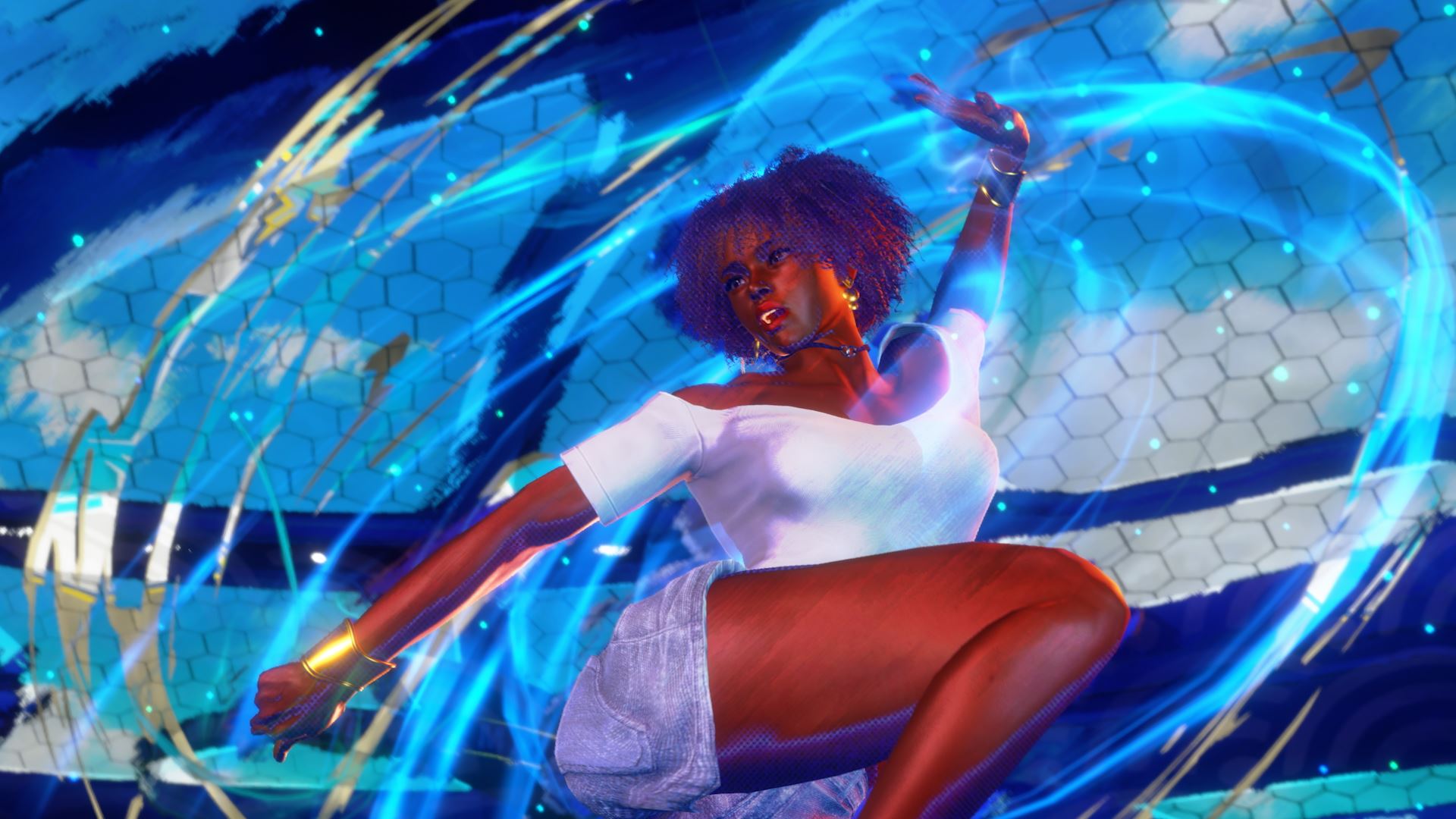
Ooh, Manon. The French grappling supermodel was up next. She has this terrifying mechanic where every command grab she lands (or her special move hit grab) adds an extra point to her 'medal' total, a number displayed under her health bar. The higher the value, the more damage her command grab does. There is no way to reduce this total and she keeps it between rounds. When tested, a level-five command grab does a staggering 40% damage.
This forces some brilliant mind games on behalf of both players. If a Manon player has a high Medal total, they're obviously going to be looking for command grabs, right? This is going to make players second guess themselves and, if they guess wrong, eat a real grip of health damage. It's hilarious to be losing the final round and be right back in the mix with one successful command grab. She also has a really cool target combo, executed with two heavy punches, that pull the opponent into point blank range and leave her at such an advantage she can make the opponent guess between a low attack and a command grab. It's very unsafe, so if you block it she's in trouble but on hit it puts you in a terrifying situation. When tested on a Ryu crouching medium kick as a means of whiff-punishing, it pulled the opponent right beside her from near maximum range on the opponent's move. Scary stuff.
Everyone's new favourite Italian muscle mum, Marisa, is an absolute bruiser. Lots of long-range, hard-hitting normal attacks that can be charged by holding the button, gaining them a single hit of armour. This is extremely useful for tanking your way through an opponent's offence and then unleashing a load of damage. She also has a hit counter move, where she adopts a stance that, should an opponent hit her, she counters with an extremely damaging attack which also leaves her at a significant frame advantage. She seems to be built around being patient and waiting for the other player to over-extend their attack and then counter with a high damage onslaught.
Dhalsim was probably the most interesting fighter, and the one we spent the most time with. He's regarded as one of the best characters in Street Fighter 5, slowly rising up the tier list year-on-year, until finding himself near the top after the final balance patch. Traditionally a 'zoner', Dhalsim changed a bit in Street Fighter 5 to be more about unique movement and space control, utilising his ability to float and teleport alongside his fireballs that travel at varying angles to dominate the screen. He still has all of that, but with a few twists. He can now perform angled fireballs that arc upwards, the standard horizontal projectile and now an aerial one that travels diagonally downwards. His V-Skill float from Street Fighter 5 is now a normal move performed by hitting down and two kicks in the air, so he can do it whenever he wants, including after certain aerial moves.
Most interestingly, however, is the change to his teleport. It used to be a dragon punch input, with some execution skills required to perform this in a way that makes Dhalsim slightly airborne when he teleports. It's a key part of being able to play the character well and is something that takes a fair bit of practice to perform consistently. Now, his teleport is simply hitting a single direction and three punches or kicks, to dictate distance and the side he reappears. By removing this execution requirement, being able to teleport away from situations on reaction, bait out enemy attacks and have access to the character's best tools is much, much easier. He's so much more mobile and so much more instantly effective and, although it's impossible to say for sure until the game is in the hands of all players, seems very good. Almost like he's playing a different game whilst everyone else is playing Street Fighter.
Counting down
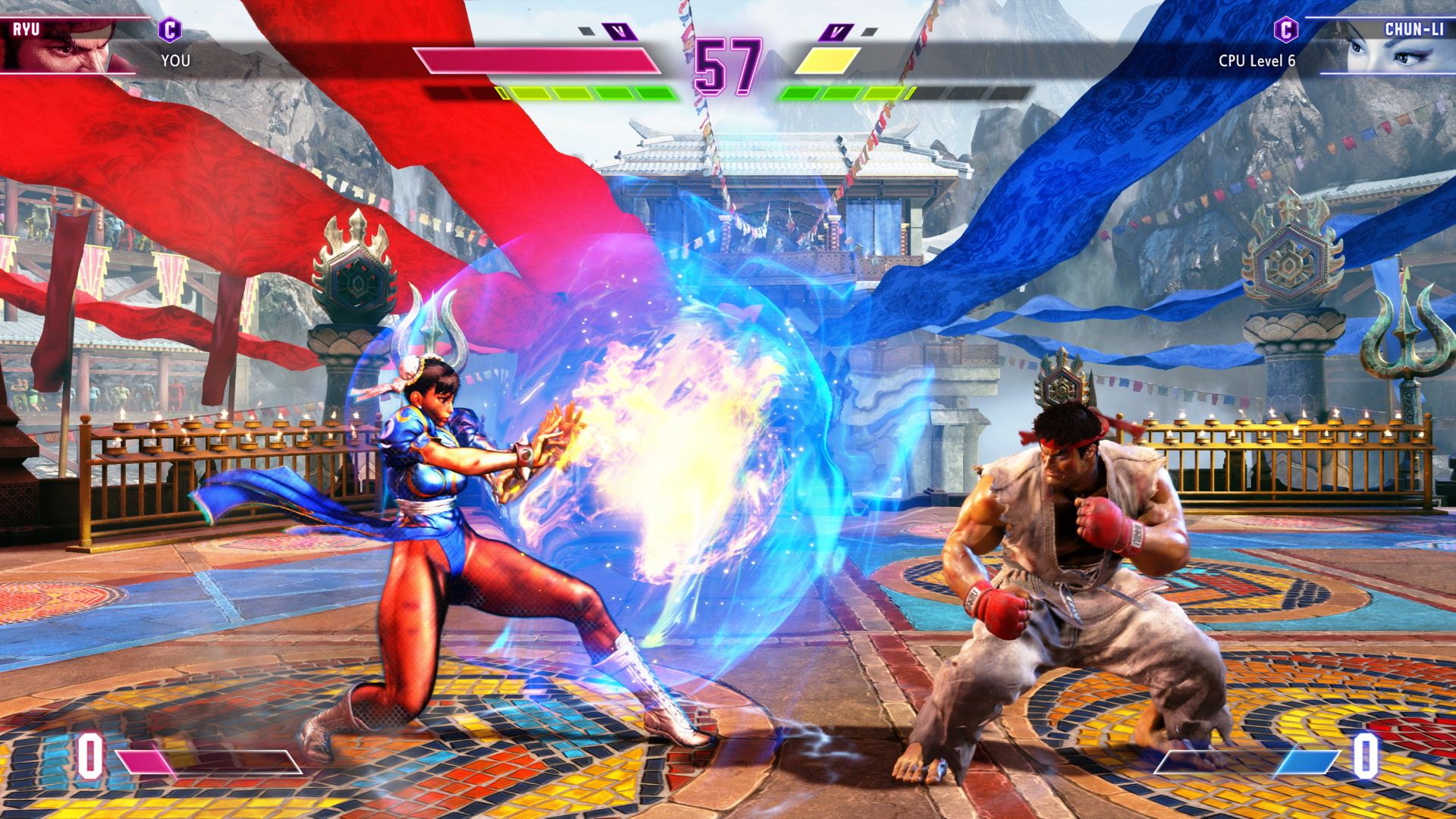
"Arcade mode scratches that itch for when you just want to smash your way through a bunch of increasingly more difficult AI opponents."
Another two grapplers added to the game are Zangief and Lily, the latter of which is another newcomer… sort of. Zangief is, of course, very much the Zangief you expect. He's slow, can take a bunch of damage and his entire gameplan centres around getting in on you and giving you a spinning piledriver. His kick counter move is now a lot more reliable and grabs all grounded kick attacks, rather than the really nebulous 'horizontal kicks-only' that it grabbed in Street Fighter 5. He also has a jumping heavy kick that causes a wall splat, putting them right in the corner and in a whole world of trouble. Lily is basically 2023 T. Hawk – her weapons are essentially just a means of giving her T. Hawk's reach and similar sized attacks, with her unique mechanic being that 'controls the wind', which boils down to her being able to stock an enhanced version of her special moves. These are actually really effective, with the enhanced version of her Condor Spire gaining additional combo potential and some significant frame advantage if the enemy blocks it – great for forcing your way in on an opponent and making them guess.
Finally, you've got a couple of old stalwarts in E. Honda and Blanka, both of whom are pretty much how you expect them to be. Honda is the old brick wall, a defensive shell that can unleash a torrent of rapid damage while Blanka is still the extremely irritating, mobile character. In previous games, both had moves that could be performed by mashing the punch buttons but this is no longer the case – Honda's hundred hand slap and Blanka's electricity are now quarter circle back and punch.
Arcade mode scratches that itch for when you just want to smash your way through a bunch of increasingly more difficult AI opponents. There's a little intro animation and unlockable artwork for every character, as well as a bonus stage where you destroy a truck and, by the looks of the trailers, the return of the Street Fighter III basketball parry minigame, which is a nice touch and, surprisingly useful at practising perfect parry timings. Arcade mode is something that people seem to feel is necessary in a fighting game but just feels so lightweight and a bit pointless when you've got such a plethora of far more fleshed out single and multiplayer modes at your disposal, but that's the thing with Street Fighter 6 – Capcom are leaving no stone unturned. They're putting everything into this one.
Street Fighter 6 is looking like the total package. There appears to be something for everyone, from those who are looking to embark on a Capcom Pro Tour online ranked season to those who simply think seeing the continued adventures of Ryu and Ken is a cool thing. It's a combination that could mean one of the biggest fighting game launches of all-time. Not long to wait now.
Here are the best fighting games to throw down with right now







